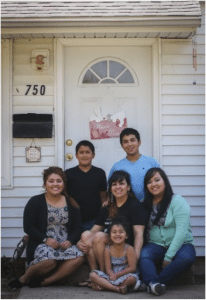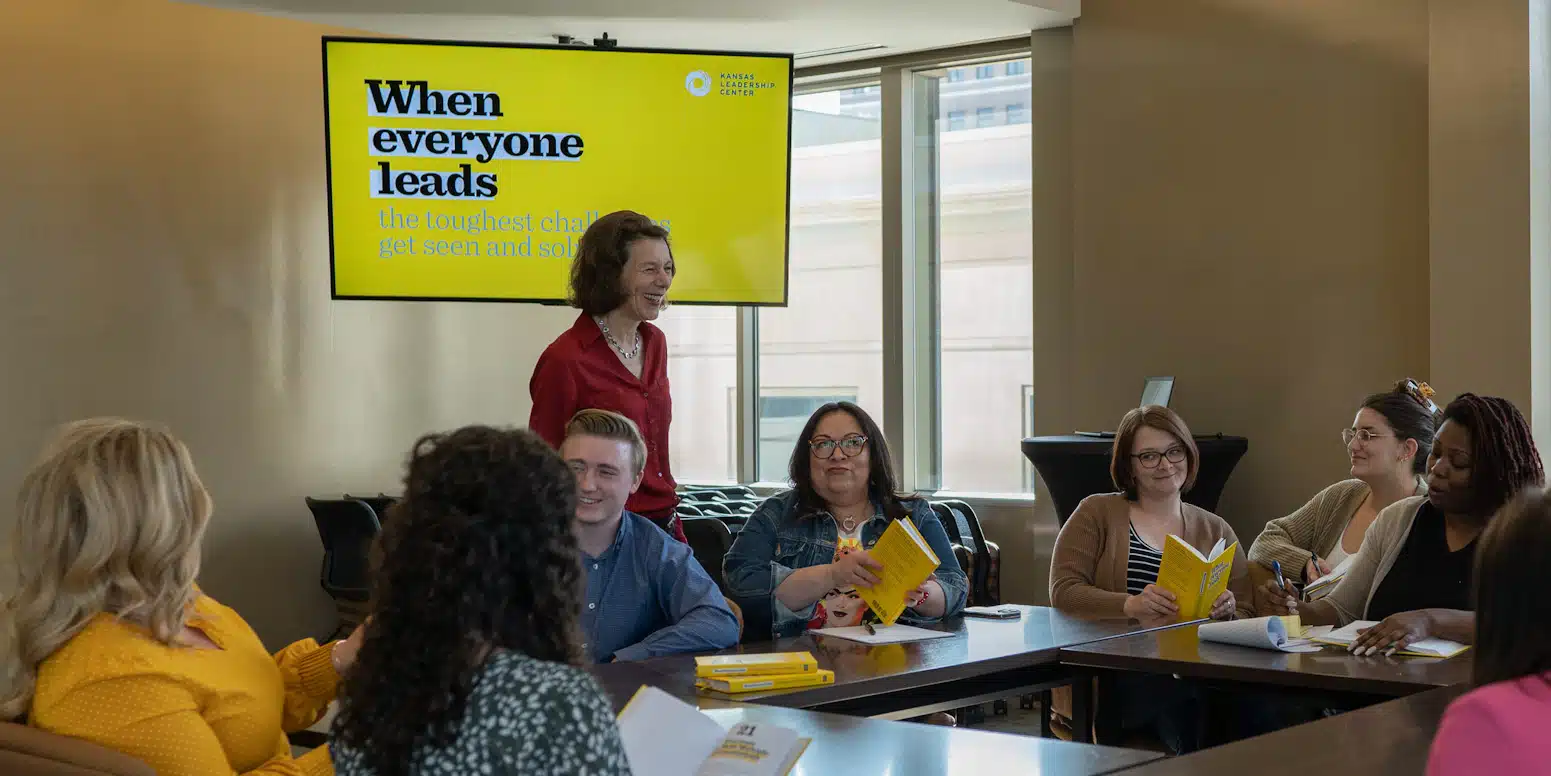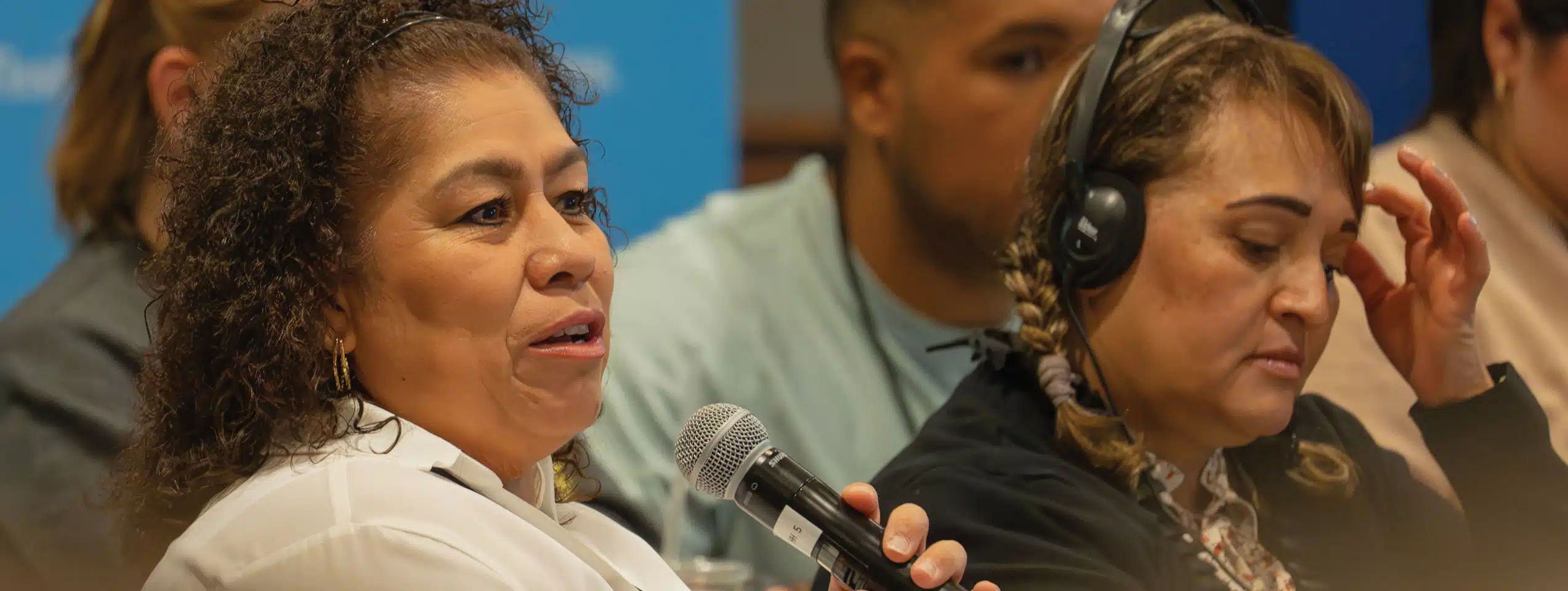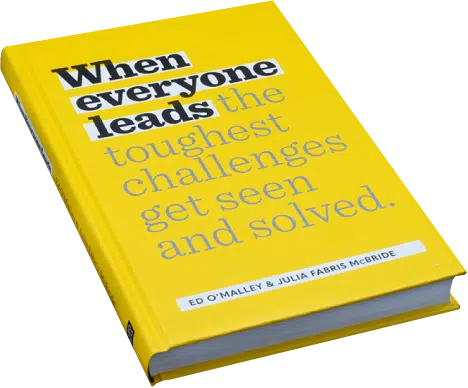
Maria Padilla and her family.
Maria Padilla’s day is probably much like yours. She gets up in the morning and wakes her children, then delivers them to three different schools. School and activity schedules differ, so sometimes she needs to make two trips. The youngest, a kindergartener, has half-day school, so Maria picks her up and then eats lunch with her.
The Salina woman shuttles the kids to appointments and makes sure they have what they need. The family has joined the local YMCA to try to live a healthier life, and they always try to eat dinner together. Maria loves to gather everyone at the end of the day. She likes to keep a clean house and is an excellent cook.
Maria is also struggling to lift herself and her family out of poverty.
Maria came to California from Mexico at age 19 because she wanted to help her family achieve a better life. Finding a job was difficult because her education had ended at sixth grade, and the language barrier and cultural differences troubled her. “In Mexico, you walk places, but here you don’t do that. People are locked up in their houses,” she says, and when she did meet people, they didn’t speak Spanish. Unable to speak the language, her confidence crumbled.
Then she met the man who became her husband. When she looks back, Maria sees that things started to go wrong as soon as she moved in with him. “He would want to do things that single men do, go out, drink, things like that. He wasn’t responsible.” She left him for a time and went to Georgia with some family members, but he followed her. He also hit her. She now knows she was living with domestic violence. “You get used to it,” she says. “Someone else sees it, but you don’t.”
When Maria accompanied her husband to visit family in California, he offered some acquaintances a ride back to Georgia. Maria remained behind with their three children; the plan was for her husband to come back for them. When driving across Kansas, the men were stopped. The highway patrolman asked if he could search the car, and the men agreed. One of the passengers had what Maria calls “something” in his backpack, and all the men were arrested. Maria rode the train to Kansas with her kids to get her husband out of jail. They never left.
Maria and her husband had two more children, but their relationship didn’t improve. He often refused to contribute to the household in any way other than working on weekends; when Maria would return home after work, he hadn’t changed the baby’s diaper all day and expected her to cook a large meal and do all the cleaning and other home maintenance tasks. Maria says her friends would ask her, “Don’t you see how he treats you?”
Then he started mistreating the kids. The oldest daughter, Michelle, was particularly bothered by his verbal abuse. One day when Maria was at work, she thought, “Maybe he will die soon, and I will be free.” She realized that she was wishing for her husband’s death, and that something had to change. She told her children later that week that she had to leave and that they could choose to go with her or remain with their father. They all chose to go with her.
They left with nothing.
STARTING OVER
In some ways, Maria was lucky, because she was able to go to a shelter in Salina. “They welcomed me and wanted me to feel comfortable,” Maria says.
“They bought a lot of food because they knew I cook. The shelter is on top of the building and the office is below, and everyone would say, ‘Maria is cooking!’ They wanted me to have whatever I need.”
Maria’s needs went beyond housing and food. She quit her job when she went to the shelter because she feared her husband would follow her and cause problems for her at work. She lacked legal papers to work, and even though she could find jobs at restaurants, she was always afraid. The Domestic Violence Association of Central Kansas helped her conquer her fear by assisting her in obtaining a legal work permit. She also was placed at the top of the list for a house through the Salina Housing Authority.
While sorting our her legal problems, including a divorce, and meeting her family’s immediate need for shelter, Maria set about supporting herself. She worked at a grocery store for a year, a chain restaurant for eight months and a chocolate factory in a seasonal position for a few months. She worked at a pizza factory throughout 2013. In addition to supporting her family, she wanted to demonstrate her desire to work so her record is solid when she’s able to apply for citizenship in three more years.
When working at the factory, Maria woke up at 4 a.m. and returned home at 4 p.m. The schedule left her exhausted, and the $1,200 she made each month wasn’t enough. The housing authority charged her income-based rent of $550, so she was able to pay rent and for car insurance for herself and her oldest daughter, but she often couldn’t stretch her income enough to keep food on the table.
Maria’s eyes brim with tears when she talks about this experience. She asked herself, “I am working, but why don’t I have food?” She felt helpless, yet reluctant to ask for assistance. “What people don’t understand is that it’s embarrassing. We don’t want to go and ask for help,” she says.
When she finally relented and went to a local food bank, a volunteer looked her up and down then tried to send her elsewhere. “I look clean, my shoes don’t have mud. You have to go smelling bad or look like a hobo or smell like alcohol, or they think you don’t need the help. I think maybe she wanted me to look bad or ugly so she could help me,” Maria says. The situation was later rectified by another staff member, but Maria felt humiliated.
Besides her kids, the thing that kept Maria going was a desire for education. She puts it simply: “I want to get my GED to get a better job.” Her English is now excellent, and she knows bilingual staff members are needed in courthouses, schools and hospitals. She also watched her oldest daughter, Michelle, leave home for college at Fort Hays State University. Michelle wants to be a nurse, and Maria wants to live up to her own potential as Michelle achieves hers.
Maria’s voice breaks when she talks about Michelle. The emotion is a complicated concoction of love, pride and inadequacy. “When she enrolled in college, she did everything,” Maria says. “I don’t know anything about that — this is the first generation in college. She filled out all the papers. She doesn’t even want to ask me for money,” she explains. Michelle worked and paid the application fees herself.
In the hope of accelerating the process of obtaining her GED, Maria made the difficult decision to quit working so she can spend more time at the adult education center. As soon as she drops her youngest off at kindergarten, she goes to the education center to study. She returns in the afternoons when she can to log additional time. Her progress has been slow, but it’s becoming easier. “My writing and reading have improved, so I don’t need any help,” she says. “It feels pretty good. I wish sometimes I could stay there for seven hours.”
Maria’s biggest challenge is balancing her priorities and responsibilities to her family, her education and her adopted country. She admits that she cries with frustration at times when she doesn’t have money to pay a bill, but she remains optimistic. “I have to be positive because positive brings positive things. I don’t want negative; I want positive in my life,” she says.
CIRCLES: POSITIVE REINFORCEMENT
Circles of the Heartland is a major source of the positive message that Maria can finally achieve her goal of a better life. Maria heard about Circles, a self-funded nonprofit with eight sites in Kansas and more than 70 in the U.S. and Canada, in the Family Self-Sufficiency program through the Salina Housing Authority. The Salina group started in February 2012 and offered its inaugural class in May 2013. Maria contacted Rodney Denholm and Shelly Martin, program administrators, who urged her to apply.
A 14-week Getting Ahead class is the first step in Circles’ long-term approach to helping participants find a path out of poverty. The curriculum helps those in the class analyze their current situations, including where their money goes, how they spend their time, how to calculate debt-to-income ratios, and the causes of poverty. A workbook discusses concepts such as the hidden rules of economic class and important differences in language with the goal of helping people learn new problem-solving approaches rather than living subject to the “tyranny of the moment.”
Shelly explains that the class works because people struggling to attain financial stability often bounce from crisis to crisis and don’t have the same life experiences as those raised in the middle class. “We learn from our parents, this is how you handle this, this is a checkbook, this is savings, this is a retirement account – we know those terms and understand those things. They’re just experiences, but they’re not written down anywhere,” she says. “It’s a huge barrier for those who live in poverty.”
Class participants also learn about building resources and setting goals. When the class concludes, graduates become circle leaders – the center of the circle – and are matched with allies, who surround the leaders. Allies go through their own training to learn about the experience of those in poverty in general and their circle leaders in particular, then they serve the leaders by meeting with them weekly and offering support. Their role is to encourage leaders as they meet their goals, not to offer instruction or unsolicited advice or meet material needs. Including the Getting Ahead class, circle leaders commit to at least 18 months of Thursday meetings.
Deb Marseline serves as an ally and is teaching the current Getting Ahead class. As a former social worker and college instructor of social work, she says she has always believed people have potential and capacity but are hindered by their circumstances. “Getting involved as an ally, I support somebody and show them that they have survived a lot and that they have the skills and capacities to change their situation,” she says.
Deb has seen the program make a huge difference to circle leaders and the new Getting Ahead class because it gives them a community. Meetings typically begin with a meal, and the Circles staff provides activities for the children so the adults can focus. Participants and allies make the meetings a priority and are eager to connect. “People who are on the fringe or feel isolated now have a community where people love and support them despite their situation,” she says.
The support has made all the difference to Maria. “I want a better future for my kids. And that’s what I’m doing, I’m trying to go to school to learn and get a better job. When you come to the program, you know what you want, and they say they’re going to help you follow that goal,” she says. The program steeled her resolve and helped her have the confidence to make the difficult decision to quit her job so she could concentrate on school and family. “Circles has made me brave,” Maria says. “I wasn’t like this before. I see what I want. My allies have helped me a lot. Sometimes I feel like I don’t want to do something, but they tell me ‘C’mon, you can do it!’” Pat Murray, one of Maria’s allies, has known her only since November but is impressed with “this strong and loving woman.” “She’s working on beginning educational things,” Pat says, “and it’s not easy because of everything else she has to do,” noting that taking care of her family requires much of Maria’s attention. “She’s real persistent and doesn’t give up even though some days it’s discouraging,” Pat adds.
In addition to offering encouragement, Pat says Circles helps participants by emphasizing intentionality. The larger culture “is loud, fast, garish and competitive,” Pat says, and those qualities don’t nurture growth in those who are struggling. Circles offers a different message: “Your real self is good enough and is what matters. It’s … a way to try to attack or respond or change, and there’s great hope in that, and joy,” she says.
Shelly Martin says that joy moves both from allies to circle leaders and from circle leaders to allies. Deb Marseline agrees and thinks the larger community has much to gain. “When we don’t know our neighbors, we’re missing that voice at the table, the amazing strengths and resilience they have. In some ways they are creative problem-solvers because they’ve had to be. They have survived things that I wouldn’t know how to survive,” she says. “The more connected we are together, the more interested we are in solving the problems together.”
LEARNING LEADERSHIP
Maria demonstrated how far she’s come recently by bringing her voice to the table when Circles sponsored a poverty simulation. About 100 participants were placed in “families” living in poverty. Each family received a scenario and a packet of money and had to meet certain objectives in 20- to 25-minute “weeks,” and families had to make it through four weeks while navigating a community, paying rent, finding transportation, prioritizing bills and solving problems along the way.
Maria participated in the poverty simulation as a volunteer along with other circle leaders. Her station was a grocery store where participants could pay in cash or food stamps, but the catch was that partici-pants couldn’t speak English. Maria had to tell them that if they needed help, they could speak Spanish or bring an interpreter. One participant who happens to work at a social services agency balked at this turning of the tables and laughed when Maria told her she couldn’t speak English. Laughter seemed inappropriate to Maria, so she seized a chance to explain when all were invited to share at the end of the simulation.
Maria, normally shy about public speaking because of her accent, told everyone what it felt like to be unable to speak the language and therefore unsure about whether someone was laughing at you. After experiencing the simulation and hearing Maria speak, the participant who laughed admitted that she had never realized what non-native English speakers might be feeling when they come to her for help. “She understood what that felt like,” says Maria, smiling in triumph.
Shelly says Maria’s contribution led others to important insights. “It helps people to understand more clearly the picture of poverty and see what families are struggling and up against day after day after day in a month. It’s an eye-opening experience for a lot of people,” says Shelly. Clear vision is rapidly becoming imperative: In Saline County, 1 in 4 children live in poverty. Adults are only slightly better off; for them, the numbers are 1 in 5. Shelly adds that she expects those figures to worsen to 1 in 3 and 1 in 4 soon, and that many schools already have 80 percent or more students qualifying for free or reduced lunch.
Adults and children living in these fragile situations face an environment that is perhaps kinder to the poor than a generation or two ago. Government aid and the falling relative costs of many consumer goods have improved standards of living. But it’s also a climate where the poor are increasingly falling further behind as rungs to prosperity and self-sufficiency – assets like a college education, savings and child care – grow increasingly out of reach.
Before she was involved in Circles, Shelly was a nurse. “I worked with low-income people every day, and I thought I could explain exactly what poverty was like in my community. I was so wrong,” she says. “When I started seeing how devastating those numbers were in our community, I realized how bad the problem was.”
Now that Maria is a leader in her own life, has a community around her and is adding her voice to that community, she has a new perspective on herself and her abilities. “I am a stubborn woman,” she says. “I’m doing whatever it is to get my goal. Sometimes I surprise myself.”
Her family is on a good path, too. Amy liked kindergarten, and Juan succeeded in sixth grade.
Jack, in his teens, has had difficulties in school but worked at Burger King, helped with Amy and promised to study and get good grades so he can serve in the U.S. Army. Carla was a junior and wants to follow in her older sister Michelle’s footsteps and go to college. Carla and Michelle have struggled with the legacy of domestic violence, but both are getting help.
Aside from raising her kids and seeing them launch successful lives, Maria’s dream is to open a restaurant– just a small place or a food truck to begin with, so customers can see if they like it. “That’s why I’m going to school, because that’s the goal that I have,” she says. “Later I’m going to say I started from the bottom, and I’m here.”
Shelly thinks Maria will make it.“I’ve seen her grow,” she says,recalling how raptly the poverty simulation participants listened to her, some with tears in their eyes. “I know her emotion and her desire and need to tell people in the community her vantage point made a huge difference. She said, ‘I did it, Shelly.’ I said, ‘yes you did, and next time you’ll do it again. Next thing you know you’ll be not only leading your circle, you’ll be leading the community.’”


